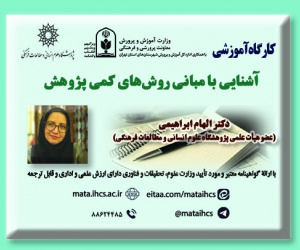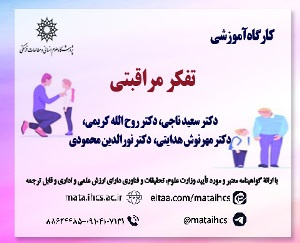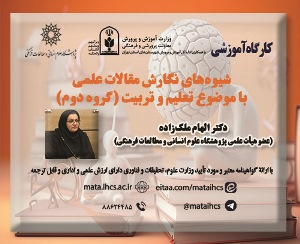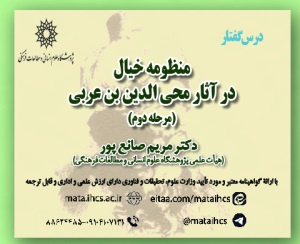مقایسه ی اثربخشی شناخت درمانی گروهی به شیوه TADS با دارو درمانی در درمان افسردگی نوجوانان 17- 14 ساله شهر اصفهان (مقاله علمی وزارت علوم)
درجه علمی: نشریه علمی (وزارت علوم)
آرشیو
چکیده
هدف از اجرای این پژوهش بررسی اثربخشی درمان شناختی رفتاری گروهی به شیوه TADSو مقایسه آن با دارو درمانی در درمان افسردگی نوجوانان دختر 17-14 ساله شهر اصفهان بود. بر این اساس در قالب یک مطالعه تجربی همراه با گروه کنترل و با ارزیابی به صورت پیش آزمون، پس آزمون و پیگیری تعداد 27 نوجوان دختر دارای تشخیص افسردگی انتخاب شدند و به شیوه تصادفی در سه گروه TADS، دارو درمانی و گروه کنترل قرار گرفتند. آزمودنی های گروه آزمایش تدز یک دوره دوازده جلسه ای با مشارکت والدین، درمان شناختی رفتاری تدز دریافت کردند. آزمودنی های گروه تحت درمان دارویی در یک دوره 2 ماهه داروی افسردگی (فلوکستین) دریافت نمودند، در حالی که آزمودنی های گروه کنترل چنین مداخله ای دریافت نکردند و در لیست انتظار قرار گرفتند و پس از دو ماه هر سه گروه تحت پیگیری قرار گرفتند. آزمودنی های سه گروه با استفاده از مصاحبه بالینی ساختار یافته برای اختلال های محور I (SCID-I) و مقیاس تجدیدنظر شده افسردگی بک (BDI-II) مورد ارزیابی قرار گرفتند. داده ها با استفاده از روش تحلیل واریانس یک طرفه با نرم افزار آماری SPSS20 تجزیه و تحلیل شد. یافته ها نشان داد که برنامه شناخت درمانی TADSبه طور معناداری مؤثرتر از دارو درمانی، افسردگی را کاهش داد (01/0P<). براساس نتایج آزمون تعقیبی توکی اثر عمل آزمایشی پایدار بود (01/0P<). در نهایت پیشنهاد می شود که شناخت درمانی گروهی به شیوه TADSبه عنوان یکی از روش های مداخله ای مؤثر برای کاهش افسردگی نوجوانان بکار رود.Comparison of the Effectiveness of Group Cognitive-Behavior Therapy with TADS Method and Pharmacotherapy in the Treatment of 14-17 Year-Old Adolescents Depression in Isfahan
The purpose of this study was to investigation the efficacy of group cognitive-behavioral therapy with TADS method and its comparison with pharmacotherapy in the treatment of 14-17 year-old girl adolescents depression in Isfahan. Accordingly, in an empirical study with a control group and the evaluation as a pre-test, post-test and follow-up of 27 girl adolescents with diagnosis of depression were selected and they were divided into three groups in random method: TADS, pharmacotherapy and control group. The subjects of TADS experimental group have received a TADS cognitive-behavioral therapy in a period of twelve sessions in partnership with parents. The subjects of pharmacotherapy groups have received depression treatment (fluoxetine) in the course of 2 months. While the control group have not received the intervention and were put in the waiting list and after two month all three groups were followed up. The subjects of three groups were evaluated with the use of the Structured Clinical Interview for Disorders of Axis I (SCID-I) and revised Beck Depression Inventory (BDI-II). Data were analyzed with the use of one-way analysis of variance with statistical software SPSS20. Results indicated that TADS cognitive therapy program decrease depression more effective than pharmacotherapy significantly (P<0.01). On the basis of the results of the post hoc Tukey test, experimental action effect was stable. (P<0.01). Finally, it is suggested that the group cognitive therapy used in a TADS method as one of the effective intervention methods to reduce depression in adolescents.






